
7 Ways To Change Your Gut
Gut Health
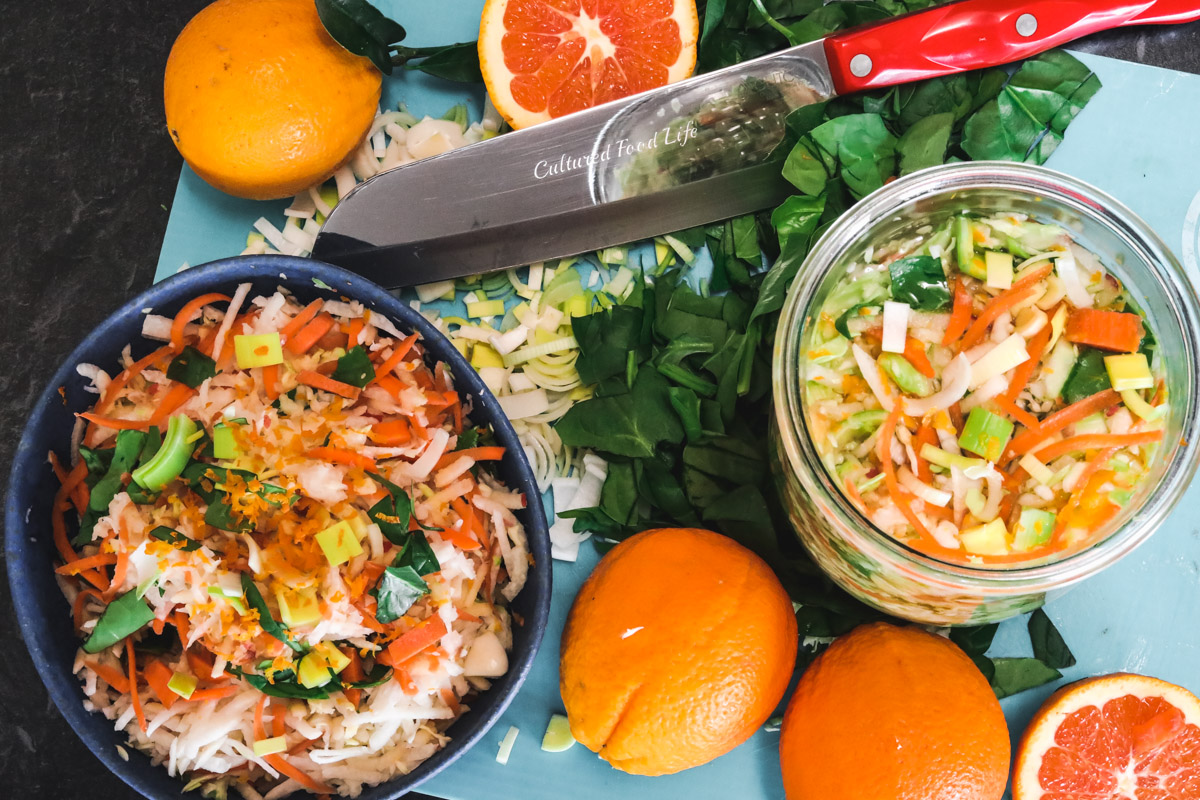 Gut health is more important than you can imagine. Having a healthy gut means your gut contains large amounts of healthy bacteria and immune cells that ward off infectious agents like bacteria, viruses, and fungi. But that's not all! A healthy gut also communicates with the brain through nerves and hormones, which helps maintain general health and well-being and less anxiety. If you've been experiencing more anxiety and digestive distress, then look first to your gut. This is your body's cry for help and you're the captain of your ship. Getting better can be just a meal away. Dysbiosis and inflammation of the gut have been linked to causing several mental illnesses including anxiety and depression, which are happening more and more in society today.
Gut health is more important than you can imagine. Having a healthy gut means your gut contains large amounts of healthy bacteria and immune cells that ward off infectious agents like bacteria, viruses, and fungi. But that's not all! A healthy gut also communicates with the brain through nerves and hormones, which helps maintain general health and well-being and less anxiety. If you've been experiencing more anxiety and digestive distress, then look first to your gut. This is your body's cry for help and you're the captain of your ship. Getting better can be just a meal away. Dysbiosis and inflammation of the gut have been linked to causing several mental illnesses including anxiety and depression, which are happening more and more in society today.
You can reset your gut and restore the balance of your microbiome by:
- removing foods that feed harmful bacteria and cause inflammation and diseases.
- introducing plenty of probiotic and prebiotic foods, which feed beneficial bacteria.
- This will result in giving you more energy to exercise and do more of the things that make you happy.
Research has shown that short-term dietary changes do alter a person’s gut flora quite rapidly. [1,2]
You are closer than you think you are. Actually, you're only one meal away from changing your gut. It takes just a little bit and before you know it, your microbes will shift and they'll crave the very foods you need and then it gets easier and easier. These are the seven processes I practice that have made my life and gut change in life-giving ways. Change your gut - it will make you happy, just you wait and see.
Good things are coming, you just can't see it yet. It's like the brightest sunrise. Waiting just for you.
7 Ways to Heal Your Gut
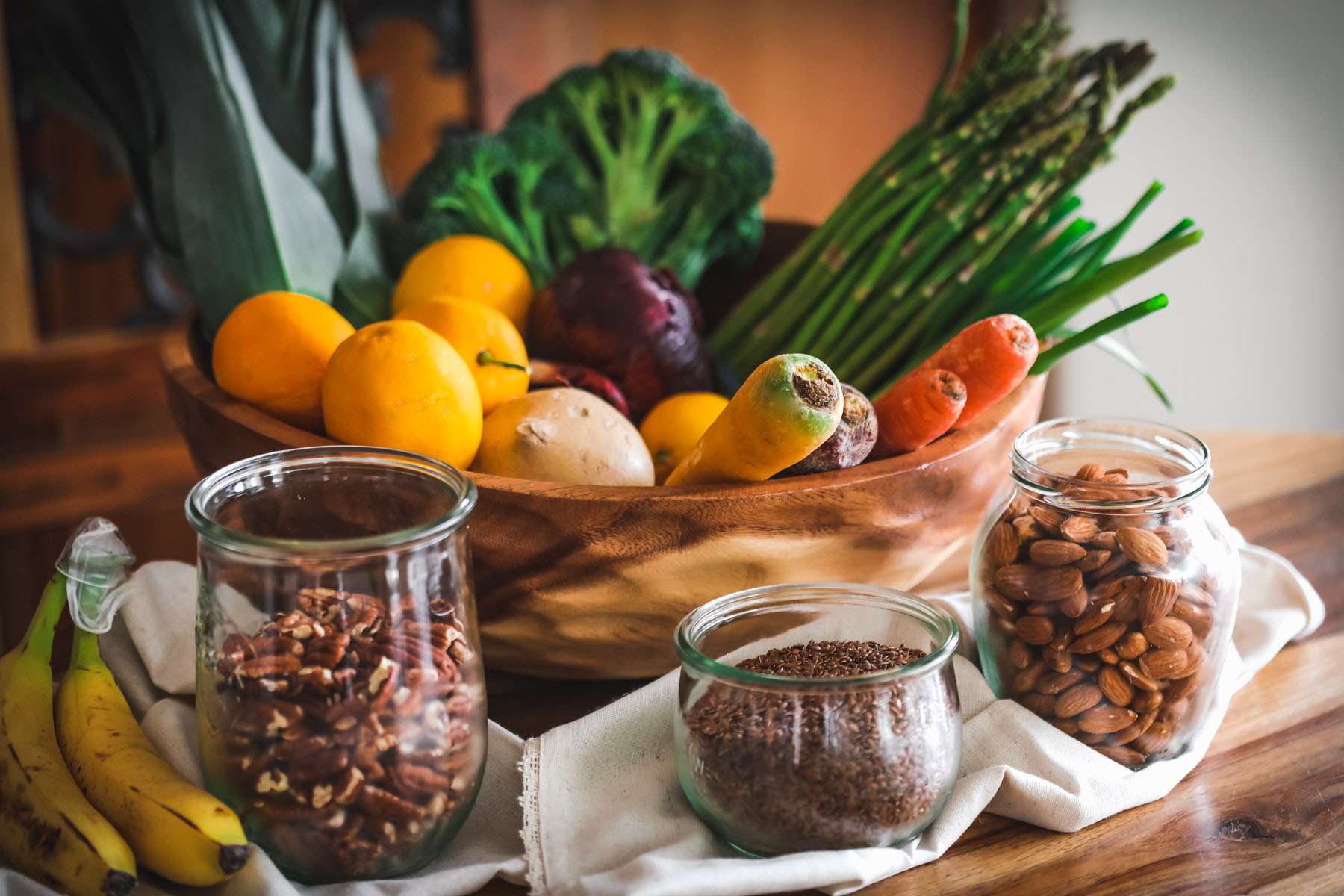
4-5 Servings of Prebiotics
Prebiotics are a must to have your gut flora flourish. Having 4-5 servings a day of fruits and veggies can be daunting, but it can also be really easy and I do it every day. A kefir smoothie with fruit is one serving. Half of your plate at lunch and dinner should be non-starchy vegetables. Then add some resistant starch vegetables such as a potato or sweet potatoes, beans, or rice and watch your gut flourish. Leafy greens and foods such as garlic, leeks, asparagus, green beans, broccoli, and cauliflower feed the microbiome and can change your gut with one meal. Check out these articles for more info.
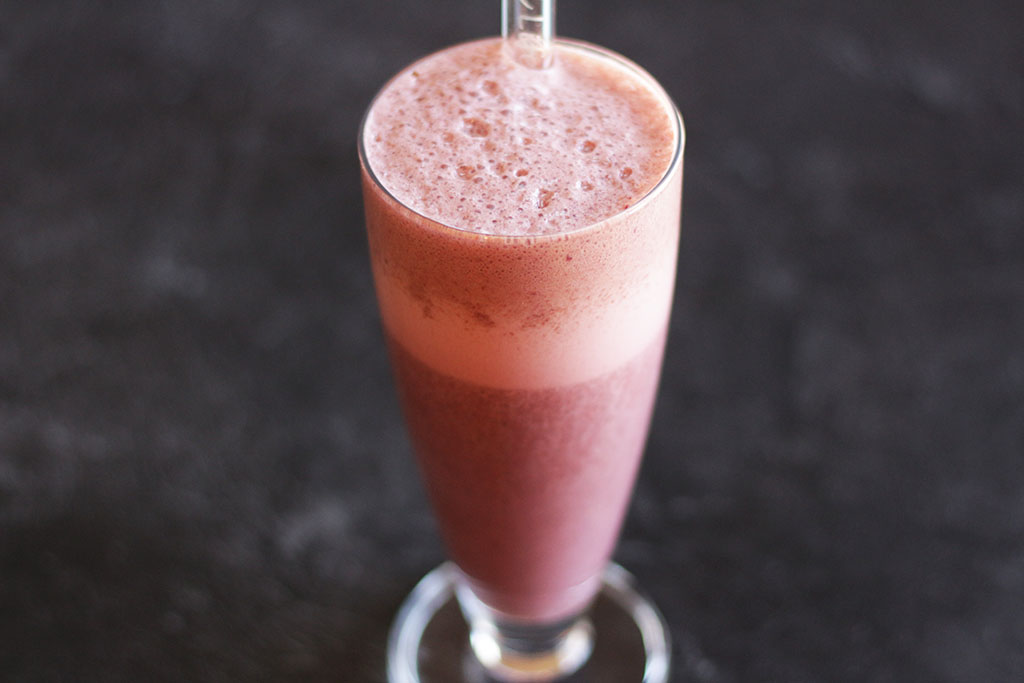
Kefir for Breakfast
I've been having kefir for breakfast for over two decades. It does so much for me and is so delicious. I never tire of it. Every few years I change the way I consume it as I evolve and grow and learn new things. Adding collagen to my kefir has made some amazing things happen. My hair has grown so long and my nails grow like crazy.
Collagen is found everywhere in our bodies and it is most abundant in the skin, bones, tendons, and ligaments. But it also holds our tissues together, providing the skeleton with a sturdy yet flexible structure that we count on every day. I can't tell you how much it has helped me and I love the way it makes my kefir taste. You can get different flavors - I love vanilla flavored collagen with frozen berries and kefir blended into a smoothie bowl.
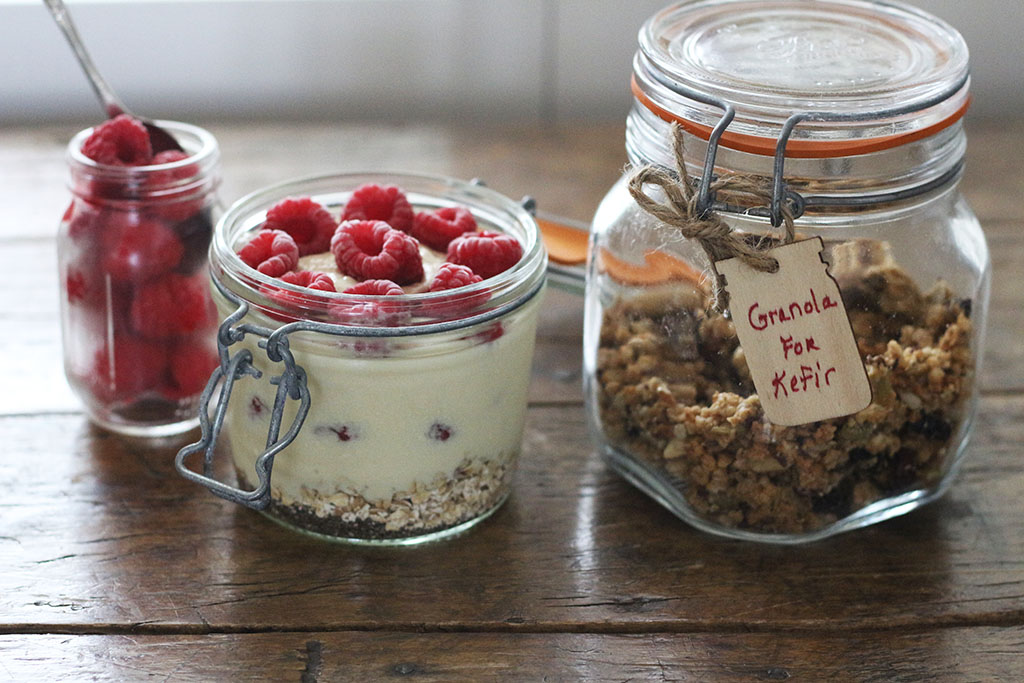
Exercise and Your Gut
Faecalibacterium and other good bacteria increase substantially after exercise. Faecalibacterium produces high amounts of butyrate and anti-inflammatory compounds, and you want lots of this special short-chain fatty acid. Exercise can change the composition of your gut microbiome and insulin powerfully, and a little goes a long way. If you do 20 - 30 seconds of exercise before a meal it changes the way your body handles blood sugar. Thirty seconds of exercise before a meal, things like squats, pushups, or even lunges will pile the blood sugar into the muscles making your blood sugar less likely to spike and more stable throughout the next meal and day. Researchers suggest that exercise might also change the composition of the gut by affecting Akkermansia muciniphila—a bacterium with anti-inflammatory properties that helps to heal and seal the gut and appears to abundantly increase in response to exercise. [3]
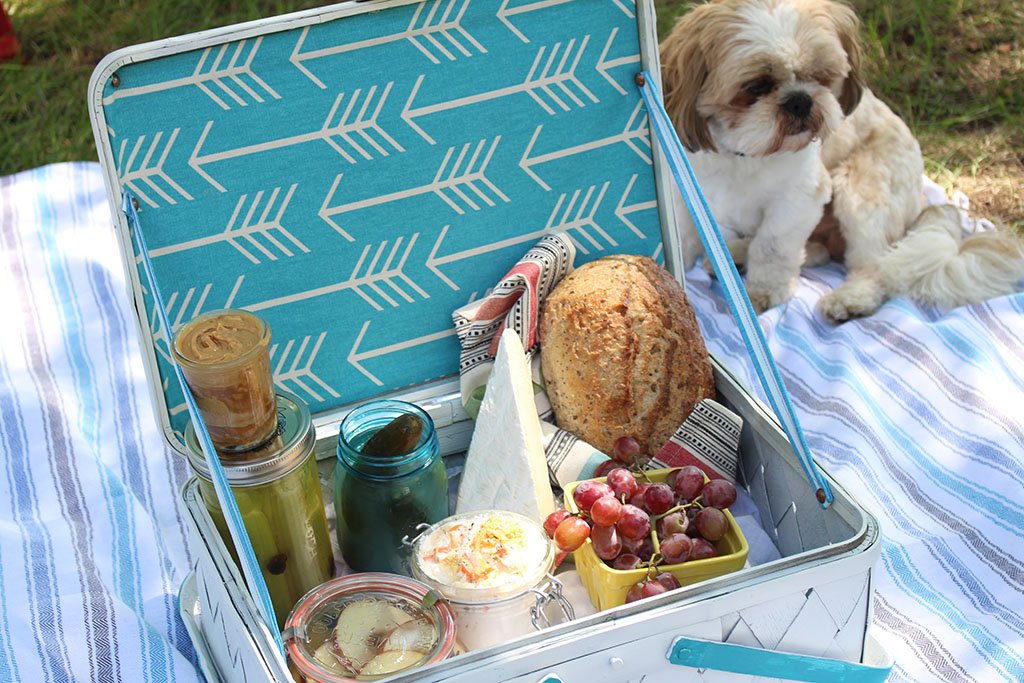
Cut Out Processed Foods and Inflammatory Oils
The Standard American Diet, packed with processed, inflammatory foods such as refined carbohydrates and industrial seed oils, is an established risk factor for gut dysbiosis. Our gut microbes need dietary fiber to fuel their activities. For every 100 grams of fiber you consume, you make 30 grams of bacteria. This fermentation process, done by the microbes in your gut, is necessary to achieve a powerful and robust immune system. A lack of dietary fermentable fiber, which is quite common in the United States, deprives gut bacteria of this fuel and leads to reductions of beneficial bacteria and can lead to the development of chronic conditions such as autoimmune disease, metabolic distress, and mental health issues among many other health problems. Eat whole real food!
Probiotic Foods for Different Ailments
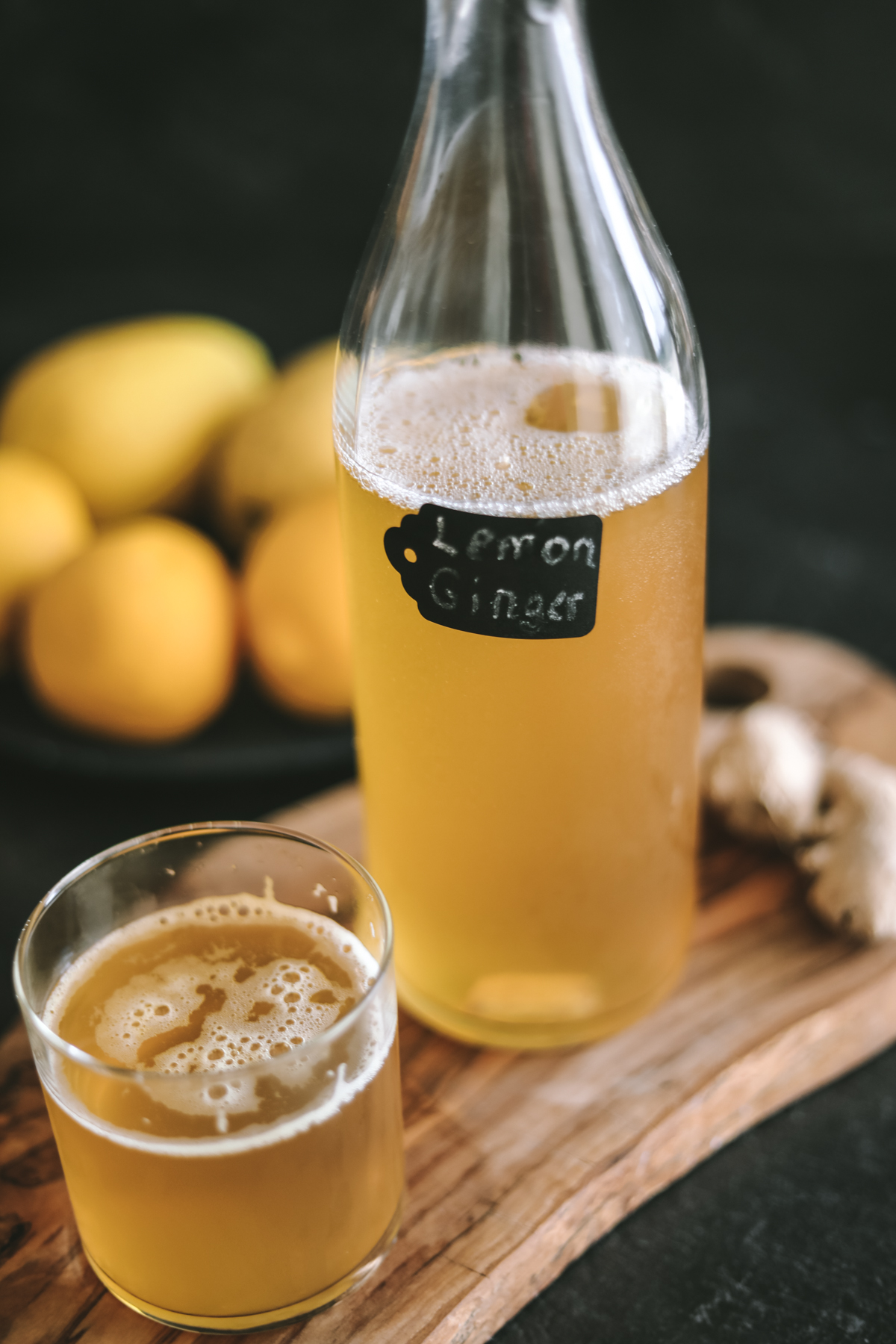
Add Kombucha Once a Day
I love kombucha and not just because it tastes fantastic. I love it because it has a special probiotic called Saccharomyces boulardii (S. boulardii). It is an incredible probiotic and when you make kombucha, you can get lots of this powerful probiotic yeast. S. boulardii is one of the most researched probiotics and has been used worldwide to support gastrointestinal health. To be an effective probiotic it must survive its passage to the colon. This means it needs to survive at the body temperature of 98 degrees and be resistant to stomach and bile acids, and then survive the complex and diverse microbial world of the intestinal tract. S. boulardii does this and more, and it's resistant to antibiotics, heat, and stomach acids. It has been used in hospitals to help with acute diarrhea in children and adults, offering support for Clostridium difficile (C. diff), bowel disorders, AIDS patients, children with autism, and inflammatory bowel disease. If you need to take an antibiotic, it's a powerful probiotic to take since it's resistant to antibiotics and it will be helpful if you find yourself with Candida overgrowth.
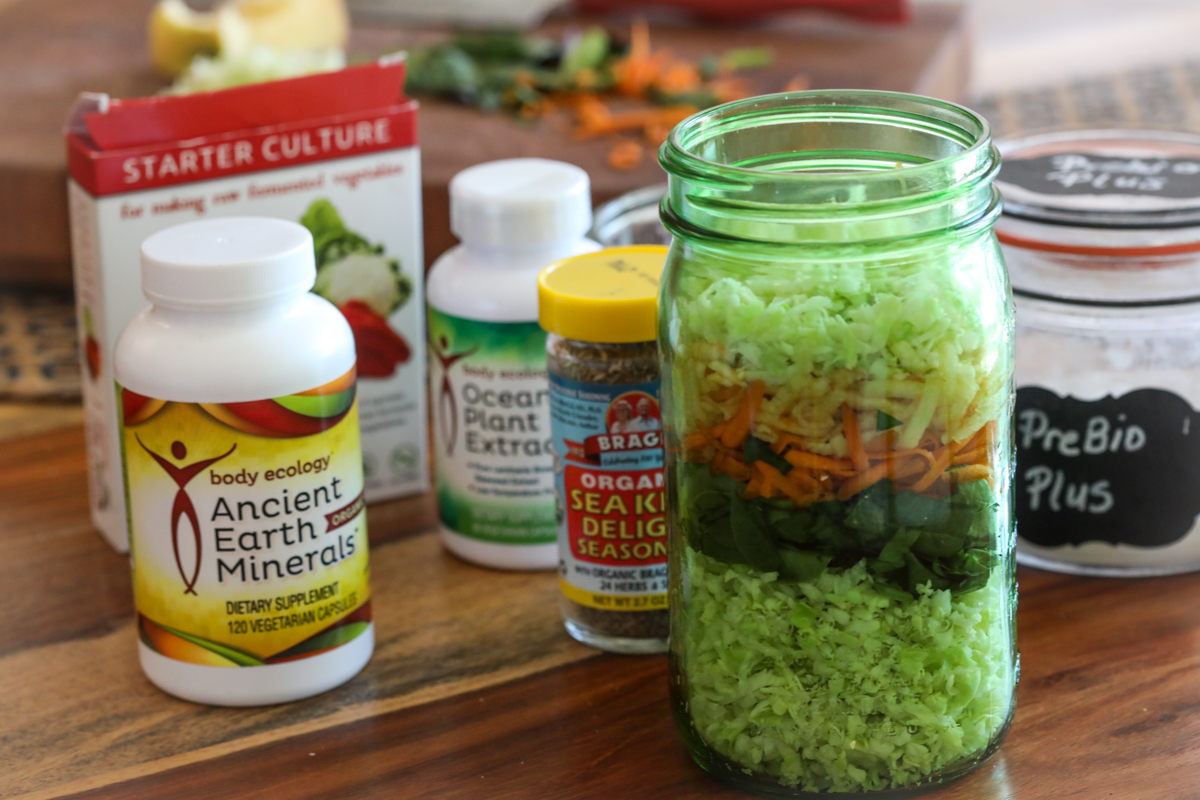
Add a Spoonful of Cultured Veggies 1-2 Times a Week
I had several close friends tell me that their cholesterol started improving when they began to eat fermented foods. In fact, their good cholesterol rose quite significantly and they were really surprised how good their numbers were. It's a very interesting thing to understand how all this works.7,8 Beneficial microbes bring down cholesterol levels as they grow in the intestinal tract. Then they consume some of the cholesterol that is present, incorporating it into their own cells. This means the cholesterol becomes unavailable for absorption from the intestine into the bloodstream, naturally lowering total cholesterol.
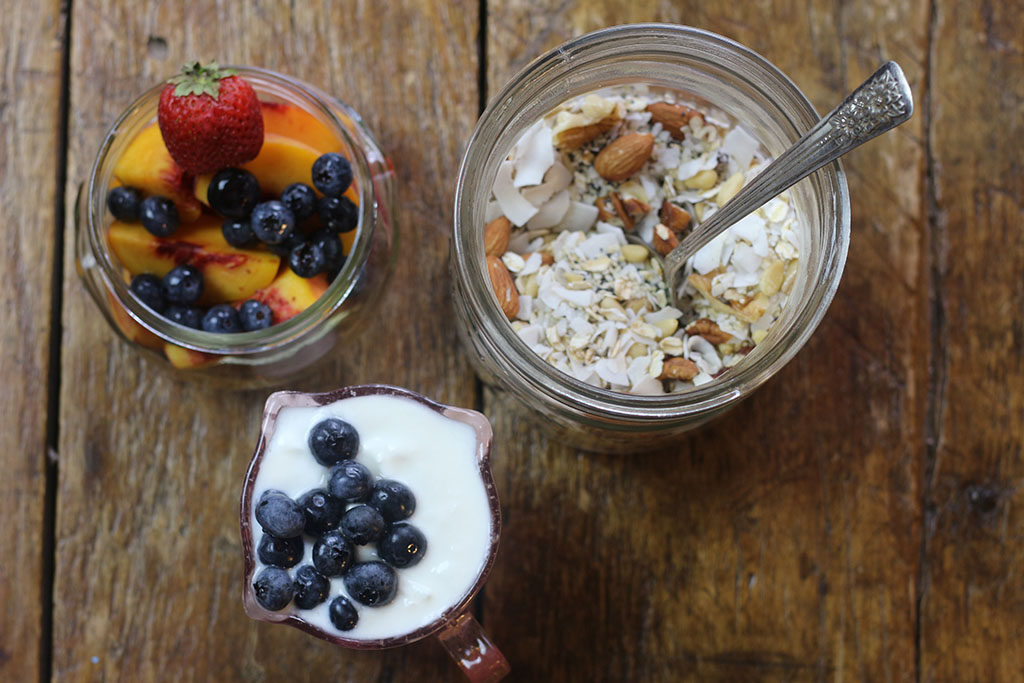
Help Your Heart and Spirit
Everybody tells you to reduce stress, but this can be easier said than done. A good diet loaded with nutrient-dense foods is so important and helps to make neurotransmitters in the brain that create calmness. But something I've learned throughout my many years on this earth - it's not just about the food. If your heart and spirit are broken, you can eat all the healthy food in the world but your thoughts and pain can cause illness regardless of what you eat. This is why it's so important to take time for yourself and connect with your heart. We are all more than flesh and bones and I have spent my life searching and praying for guidance and wisdom on how to live the best life I can with the time I've been given. Chances are good that life has impacted you in ways that make you feel out of control, but you can control what you think about and what goes in your mouth. Practice this until it becomes second nature. You'll be thankful you did. When I'm less than I want to be, there is always grace to start over no matter what has happened.
Listen To My Podcast
Gut health is more important than you can imagine. Having a healthy gut means your gut contains large amounts of healthy bacteria and immune cells that ward off infectious agents like bacteria, viruses, and fungi. But that's not all! A healthy gut also communicates with the brain through nerves and hormones, which helps maintain general health and well-being and less anxiety. If you've been experiencing more anxiety and digestive distress, then look first to your gut. This is your body's cry for help and you're the captain of your ship. Getting better can be just a meal away. Check out the podcast for more info.
References I talked about:
Are you on the list?
Sign up today and I'll send you my free Getting Started Guide!
Each week I'll send you updates, tips, recipes, and more! You might even be a winner of my weekly giveaway! (starter cultures, memberships, and more!)
Come be a part of my cultured food family!


